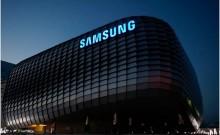
Taiwanese electronics giant HTC has officially announced that it is downsizing in a bid "to optimise the manufacturing organisation" in its homeland, thereby costing the jobs of around 1,500 employees.
HTC has been losing revenue and continues to struggle retaining its market share. The layoffs are expected to last until September. After the cuts, the company's employee headcount will be less than 5,000 people globally. In 2013, HTC had employed 19,000 people to help in its booming operation.
"Today, HTC announces the plan to optimize the manufacturing organizations in Taiwan... This plan will allow more effective and flexible resource management going forward," HTC said in a statement.
According to research firm Gartner, HTC accounted for 0.3 percent of the smartphone market in the first quarter of 2018, down from 10 percent in 2011. A Gartner analyst ruled out HTC as a significant competitor in the smartphone landscape.
Despite that, HTC said they will still attempt to regain its place in the market through this reorganisation.
"HTC continues to review its operations to ensure production resources align with key strategic initiatives so that the company can more effectively compete in its target markets while maintaining its innovative edge."
Some of HTC's most notable products include Dream, Evo 4G, Touch Diamond, and Google Nexus One. Amid Apple and Samsung Electronics' dominance in the high-end smartphone arena, HTC's flagship devices like HTC One had been a favourite among critics, although the line took a consistent downturn since 2014.
HTC's gradual shift of focus to virtual reality headsets has helped the company sustain existing customers and gain new ones. However, the VR hype has yet to take off and it remains a question if HTC can hold up until a huge percentage of electronic consumers are ready to fully embrace the virtual reality market.
In 2017, Google and HTC had entered into a $1.1 billion deal to pick up approximately 2,000 HTC engineers and technical staff.













